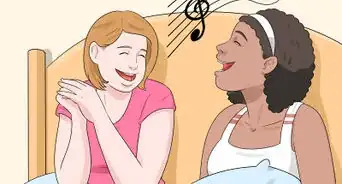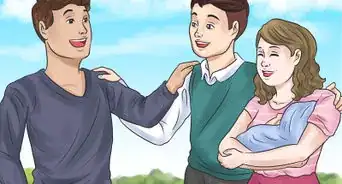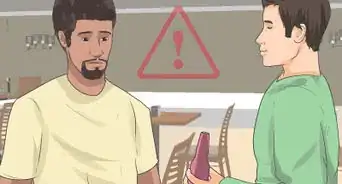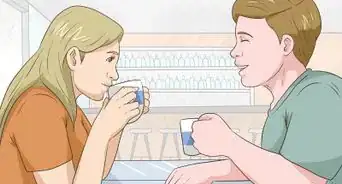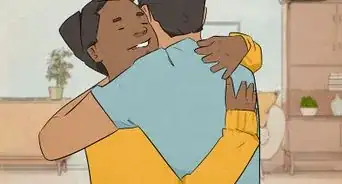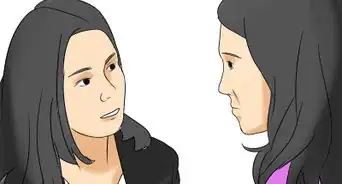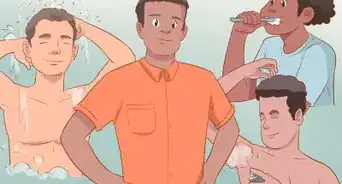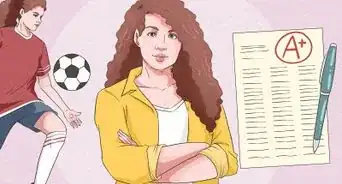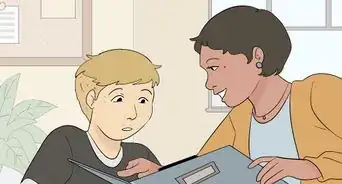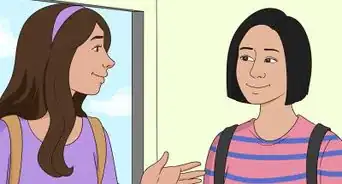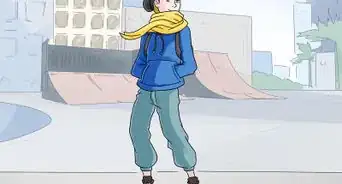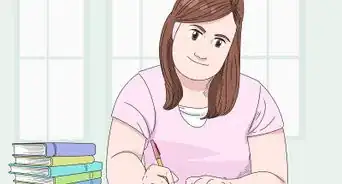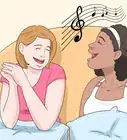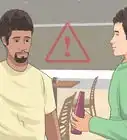This article was co-authored by Ashley Pritchard, MA. Ashley Pritchard is an Academic and School Counselor at Delaware Valley Regional High School in Frenchtown, New Jersey. Ashley has over 3 years of high school, college, and career counseling experience. She has an MA in School Counseling with a specialization in Mental Health from Caldwell University and is certified as an Independent Education Consultant through the University of California, Irvine.
There are 11 references cited in this article, which can be found at the bottom of the page.
This article has been viewed 414,071 times.
In your teenage years, friendships constantly change. Life changes, too--a best friend moves away, or has a falling-out with you, or you simply drift apart. Not having a best friend during high school can feel lonely, but friendships change, there are ways to find new friends, and at worst, high school is temporary. By focusing on yourself and staying open to new people and experiences, you’ll be able to thrive even without a best friend.
Steps
Staying Positive About Your Social Life
-
1Keep your thoughts about your social life positive.[1] Not having a best friend does not mean you are somehow inadequate or less than anyone else. High school is a stage in your life--and really a brief one at that--and does not last forever.
- When a negative thought pops into your head, counter it with a more positive thought. For example, if you find yourself thinking, “I can’t believe that I don’t have a best friend,” counter that with “I’m glad I’ll get the opportunity to make new good friends in the future.”
- Keep a positivity journal.[2] When you’re feeling low, write down all the things you are thankful for.
- Tack up positive quotes in places where you can see them. For example, you could use a dry erase marker to write an uplifting quote on your bathroom mirror so that you see it every day.
- If you find yourself being a loner or have negative thoughts that interfere with your day-to-day life, seek professional help.
-
2Limit your social media time.[3] Too much social media can cause you to compare yourself unfavorably to others and this may lead to you feeling worse about your own life. It can also lead to anxiety and depression. [4] Also use your social media time wisely, to connect with people positively rather than get sucked into flame wars, one-upping others, and other negative social interactions.
- Remember that many people only post on social media when they are feeling their best and the highlights of their life. The reality of even the most popular kids might be very different than what they show online. Indeed, sometimes the reality is very different than what they portray in real life.
- Give yourself daily time limits for looking at sites like Facebook, Twitter, Instagram, and Tumblr. You can even download an app like Self Control to make sure that you do not linger on those sites after your time limit.[5]
- Post positive things about yourself. You do not have to be surrounded by friends to post things about yourself you are proud of, things that inspire you, funny cat videos, or whatever makes you feel good.
- Online friends can be real friends. Online friendships are different than ones in real life, but they can be every bit as affirming and supportive as one you see in real life.
- Reflect on your social media use. Is your usage reflective mostly of "your best self"? Media usage can be negative, and so what time you do have should be focused on things that uplift, are meaningful, and make you positive. Examples of positive use of social media:
- Keeping in contact with friends who make you feel good about yourself.
- Engaging in causes you believe in.
- Interacting with others with your interests.
- Whimsical postings that make you laugh.
- Videos that inspire you to meet your artistic goals.
Advertisement -
3Write down a list of goals to help you focus on yourself. High school is not just about your friends and social life. It’s also about becoming the person you want to be and achieving new things. Writing down your goals will make them more tangible and give you the motivation to work towards something you really want to do.
- For example, if you want to learn Japanese, set goals for how much you will study it every day.
- Or, if you want to learn photography, set goals for the types of pictures you want to take.
- Remember that in high school you have the time to explore and figure out what you want to do.
- Make sure you aren’t using your goals to distract you from unpleasant things or as a means to avoid them.
-
4Work hard in class to keep busy and succeed. Even though creating friendships can be an important part of school, a lot of people never really build lifelong friendships with high school friends anyway. For many people, success in high school comes from learning and getting good grades so that you’ll be able to do what you want in life. Take elective classes that challenge you.
- High school doesn’t have to be just about getting by academically. While it can be tempting to throw yourself into academics, be sure to spend time focusing on other aspects of growth, such as your spiritual growth and your physical health.
- If you work hard in school, you’ll have the edge when it comes to applying to college or for jobs.
- Plus, your teachers will be more likely to give you a good recommendation if you visibly work hard.
-
5Find other social outlets. You don’t have to have a single best friend to have a fulfilling social life in high school. Sometimes having lots of different friends can be even better.
- Focus on talking to all of your acquaintances, even if they are people you don’t think would ever be a best friend.
- Spend time with your family. It’s easy to overlook family as a source of friendship in high school, but they are the people who will be with you throughout life. Spend time getting to know your siblings, grandparents, or parents even better.
Meeting New People and Staying Busy
-
1Play sports to meet new people.[6] Playing sports can help broaden your social life in high school and take your mind off not having a best friend. You don’t have to be an all-star athlete in high school to enjoy sports.[7]
- Whether it’s dance, volleyball, hockey, football, soccer, cheerleading, basketball, or track, choose a sport that you enjoy.
- Being on a team will let you meet and connect with your peers and maintain your physical fitness, which will keep your endorphins high. Endorphins are chemicals in your brain, and higher levels of endorphins equate to a higher level of happiness. They can act almost like an antidepressant.
- If you can’t play for a school team, look into playing in community leagues.
-
2Participate in something artistic to learn skills and meet creative people.[8] Art classes can give you a creative outlet that will help you get through high school and learn to make something with your hands.[9]
- You can take classes at school, join an after-school club, or look for local classes. Community newspapers often have a list of free or inexpensive art classes.
- There are many types of creative expression to choose from. You can draw, paint, write poetry, act in a play, sing, play an instrument, or even learn to build things.
-
3Spend time volunteering and focus on the needs of others.[10] This will help you find a sense of purpose and meet like-minded, passionate individuals in your community. Volunteering lets you get outside yourself and do something for someone else.
- Volunteer based on your strengths. For example, if you are a great artist, volunteer at a local nonprofit arts museum. Or, if you’re good around children, volunteer somewhere like the Ronald McDonald house or the children’s hospital.
-
4Get a job to save money and meet people outside of school. If you are old enough, getting a job can be a great way to meet people outside of school, stay busy, and save some money for the future.
- Create a resume and go around to local business and fill out applications. Even if they aren’t hiring, they’ll often put your resume on file.
- Look to online job boards for posted openings. Qualifications will often be included in these, so you’ll know if you can apply.
- Ask your parents or other adults if they have any contacts that might help you find a job.
- Consider a nontraditional job with flexible hours like babysitting or taking care of a pet.
Reaching Out to Possible New Friends
-
1Stay open to all types of friendships.[11] Remember that not everyone has to be your best friend, and it can sometimes be good to have casual acquaintances that you can hang out with.
- Notice what people talk to you. Make an effort to return their attention, even if you’re not sure you’d like to be their friend. It might surprise you who you can connect with.
-
2Send a casual invite to hang out with people. Having a reason to hang out with new people can take the pressure off of you. Try to center these invites around common goals or interests.
- For example, if you have a big test coming up in your English class, ask a few people who you like in your class to come over and study with you. This gives you a reason to ask for their phone number and something to talk about.
- If you want to ask people to hang out outside of school, try making it about an event. For example, if your soccer team just won a game, as some people to go out for food afterwards with you to celebrate.
- Offer to carpool. Driving people to a game or event can be a good way to get on more friendly terms with acquaintances.
-
3Be brave, and reach out to possible friends.[12] Sometimes, finding new friends can feel almost like dating, and be just as scary. Remember, the worst that can happen is that someone doesn’t want to hang out.
- Send people you’d like to hang out with messages through social media. Start with something simple like getting coffee at a cool coffee shop or going to a music show together.
- Before you hang out with someone new, think about things you can talk about. This will help you avoid awkward silences.
- Be clear about your intentions. You don’t want the person to misunderstand your invite and think you want to go on a date.
- Consider reaching out to people different from yourself. You’ll learn more about each other and be exposed to new things.
Expert Q&A
-
QuestionWhat to do if you have no classes with your friends?
 Ashley Pritchard, MAAshley Pritchard is an Academic and School Counselor at Delaware Valley Regional High School in Frenchtown, New Jersey. Ashley has over 3 years of high school, college, and career counseling experience. She has an MA in School Counseling with a specialization in Mental Health from Caldwell University and is certified as an Independent Education Consultant through the University of California, Irvine.
Ashley Pritchard, MAAshley Pritchard is an Academic and School Counselor at Delaware Valley Regional High School in Frenchtown, New Jersey. Ashley has over 3 years of high school, college, and career counseling experience. She has an MA in School Counseling with a specialization in Mental Health from Caldwell University and is certified as an Independent Education Consultant through the University of California, Irvine.
School Counselor It may not feel like it right now, but class doesn't last forever. You can always see your friends at lunch or after school. It's a good idea to keep an open mind, though. Try talking to the classmates you do have classes with and try to make a few new friends!
It may not feel like it right now, but class doesn't last forever. You can always see your friends at lunch or after school. It's a good idea to keep an open mind, though. Try talking to the classmates you do have classes with and try to make a few new friends! -
QuestionWhat if I don't have any friends at all?
 Paul Chernyak, LPCPaul Chernyak is a Licensed Professional Counselor in Chicago. He graduated from the American School of Professional Psychology in 2011.
Paul Chernyak, LPCPaul Chernyak is a Licensed Professional Counselor in Chicago. He graduated from the American School of Professional Psychology in 2011.
Licensed Professional Counselor You may need to push yourself more outside of your comfort zone. Try joining more activities and engaging in more hobbies that involve others. It will usually lead to conversation and friendships as you will already have something in common.
You may need to push yourself more outside of your comfort zone. Try joining more activities and engaging in more hobbies that involve others. It will usually lead to conversation and friendships as you will already have something in common.
Warnings
- If you start to feel really low during high school, go see the school counselor or a psychologist so that you can talk about it and get help.⧼thumbs_response⧽
References
- ↑ http://tinybuddha.com/blog/10-tips-to-overcome-negative-thoughts-positive-thinking-made-easy/
- ↑ http://positivewriter.com/why-and-how-you-should-start-a-daily-positive-journal/
- ↑ http://www.cnn.com/2015/10/04/health/being13-social-media-teens-parents-stress/
- ↑ https://psychnews.psychiatryonline.org/doi/full/10.1176/appi.pn.2017.1b16
- ↑ https://selfcontrolapp.com/
- ↑ http://www.publicschoolreview.com/blog/10-reasons-why-high-school-sports-benefit-students
- ↑ Ashley Pritchard, MA. Academic & School Counselor. Expert Interview. 4 November 2019.
- ↑ http://teens.lovetoknow.com/Art_Class_Benefits_for_High_School_Students
- ↑ Ashley Pritchard, MA. Academic & School Counselor. Expert Interview. 4 November 2019.
-Step-8-Version-2.webp)
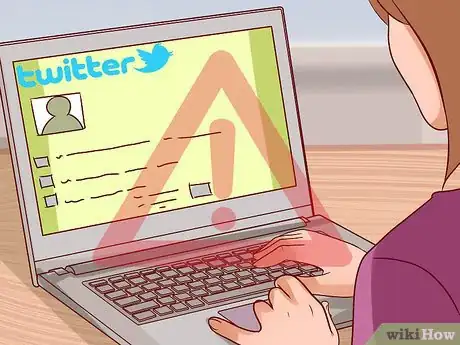
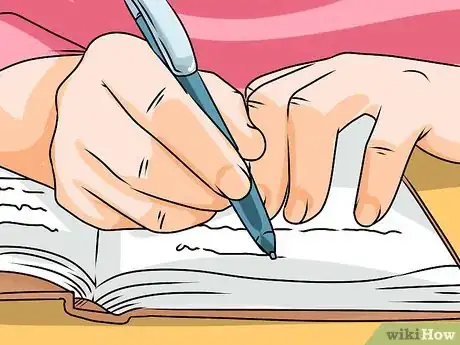
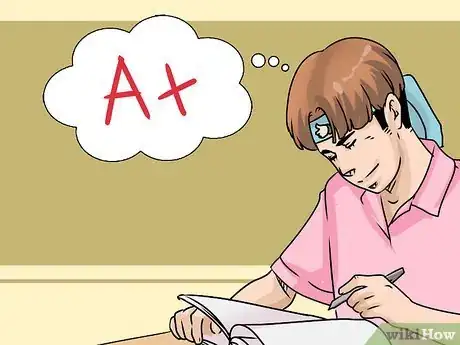
-Step-22-Version-2.webp)
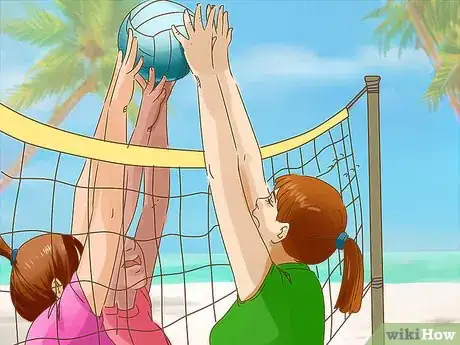

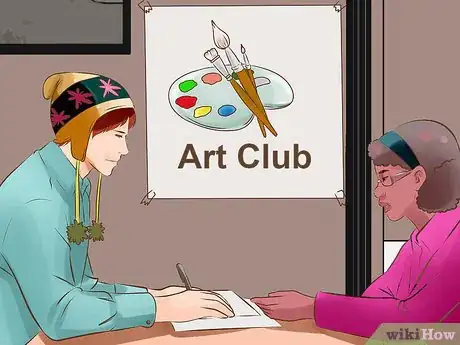
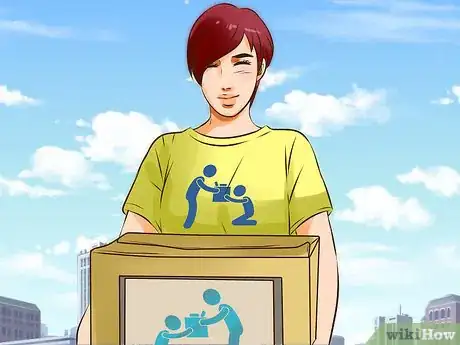
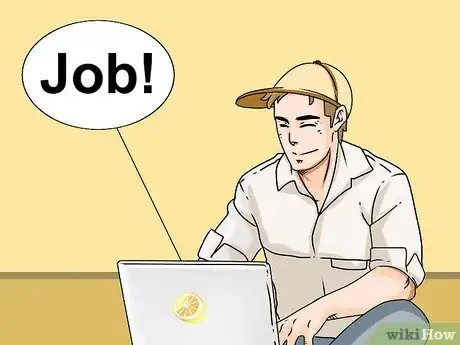
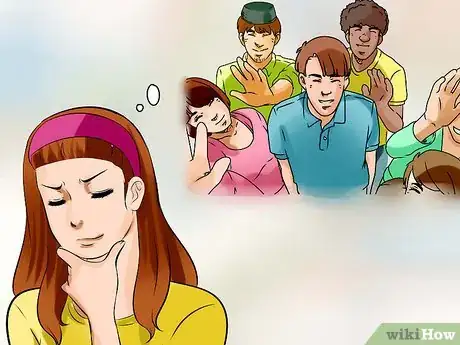
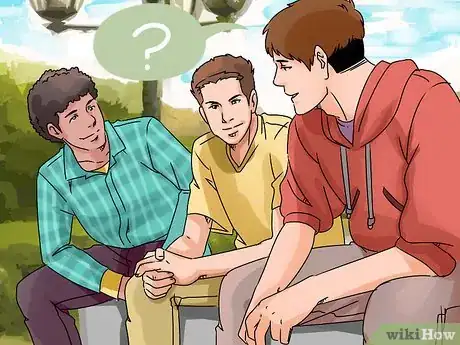
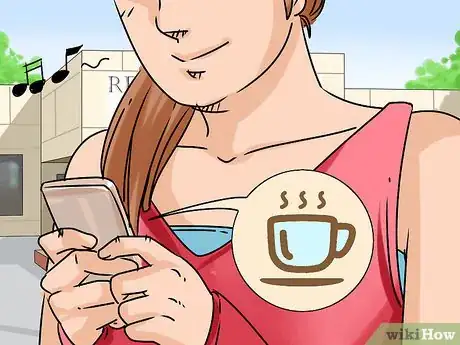
-Step-12.webp)
